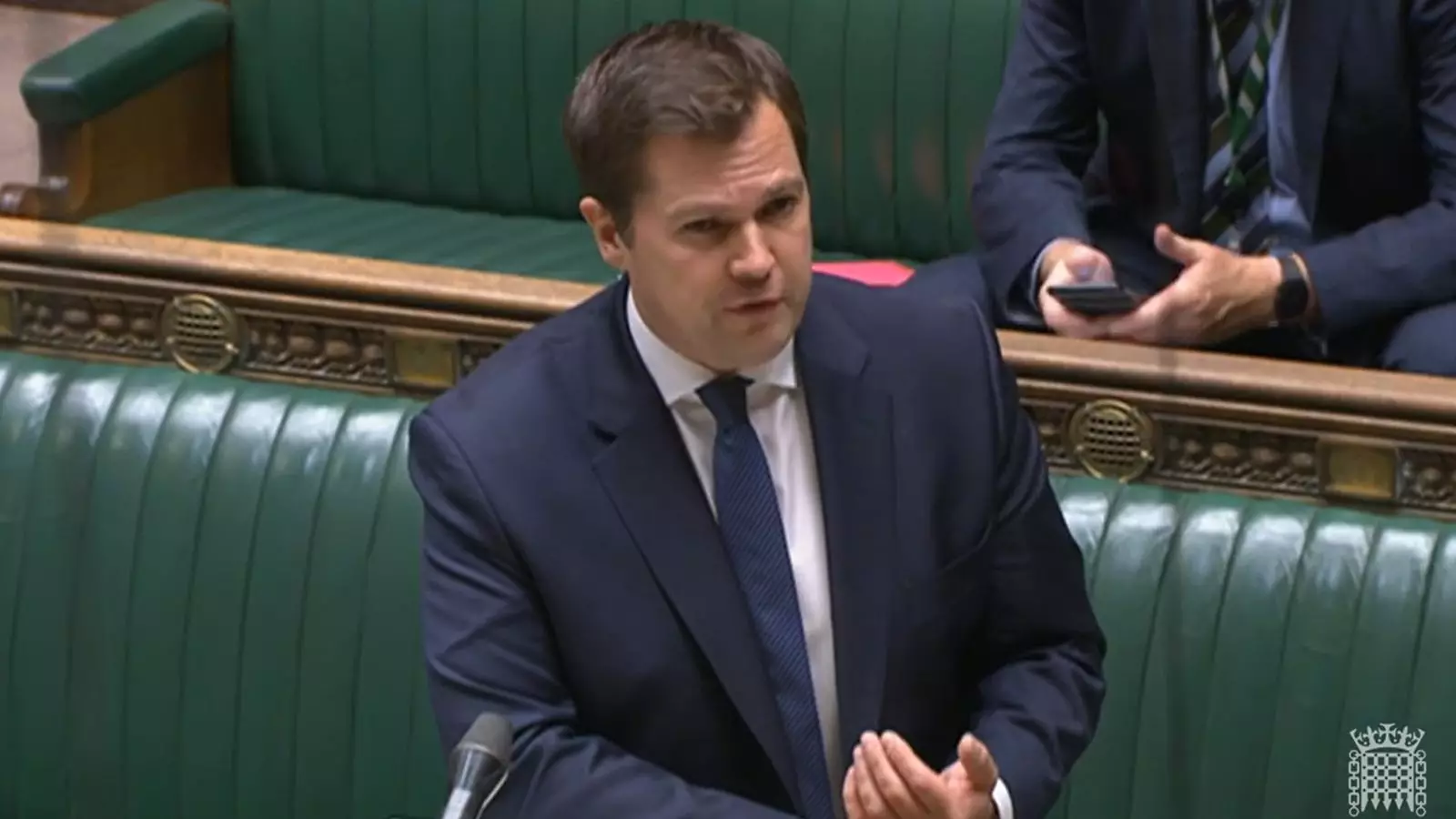The resignation of Robert Jenrick, the former immigration minister, has sent shockwaves through the British political landscape. In a statement released on social media, Jenrick expressed his “strong disagreements” with the government’s policy on immigration, specifically regarding the plan to deport immigrants who arrive illegally to Rwanda. This move comes amid mounting legal challenges and criticisms surrounding the scheme. The consequences of Jenrick’s resignation are far-reaching, impacting not only the future of the immigration policy but also the stability and leadership of the ruling Conservative Party.
Rishi Sunak, the Home Secretary, introduced emergency legislation in an attempt to revive the stalled asylum plan. However, Jenrick believed that this legislation would not solve the ongoing legal challenges facing the scheme. He argued that it was insufficient to “end the merry-go-round of legal challenges” that have effectively paralyzed the policy. As a result, he made the difficult decision to resign from his position as Minister for Immigration, outlining his concerns in a resignation letter addressed to the Prime Minister.
Jenrick’s letter emphasized his belief that the emergency legislation did not go far enough in limiting the opportunities for domestic and foreign courts to block or undermine the effectiveness of the policy. He advocated for a clear and comprehensive bill that would provide a stronger foundation for the government’s immigration agenda. In his view, the proposed legislation was merely a “triumph of hope over experience,” lacking the necessary provisions to prevent future legal challenges.
As news of Jenrick’s resignation spread, politicians from various parties voiced their opinions on the matter. Andrea Jenkyns, a Tory MP known for her right-wing views, welcomed Jenrick’s decision, characterizing him as a decent man who adores his family. She went on to suggest that this resignation could mark the beginning of the end for Sunak’s leadership. However, opposition MPs, particularly from the Liberal Democrats, condemned the government’s handling of the situation. They described Jenrick’s resignation as another example of Conservative chaos, with ministers fleeing from a sinking ship.
Labour, the main opposition party, seized on the opportunity to criticize the government’s approach to immigration and governance as a whole. Pat McFadden MP, Labour’s National Campaign Coordinator, accused the Tories of engaging in a “circus of gimmicks and leadership posturing.” He argued that only Labour could address the real issues affecting working people, such as the cost of living and energy bills. This sentiment reflects the growing sentiment among opposition MPs that the current government is failing to address the needs of the British people.
The emergency legislation proposed by Rishi Sunak followed the Supreme Court’s ruling that the plan to deport asylum seekers to Rwanda was unlawful. Concerns were raised about the country’s asylum process and the potential violation of international law. In an attempt to rally support within his party, Sunak addressed the 1922 Committee of backbench Conservatives, warning them that they must unite behind him or face dire consequences. However, members of the more right-wing faction expressed doubts about the future of the policy and the potential electoral repercussions it could have for the Conservative Party.
Robert Jenrick’s resignation as immigration minister has exposed deep divisions within the Conservative Party regarding the Rwanda policy. His concerns about the ongoing legal challenges and the effectiveness of the emergency legislation highlight the need for a more comprehensive and robust approach to immigration reform. The reactions from both within and outside of the party reflect the growing instability and uncertainty surrounding the government’s leadership. As the consequences of Jenrick’s resignation continue to unfold, the future of the immigration policy and the ruling party hang in the balance.


Leave a Reply